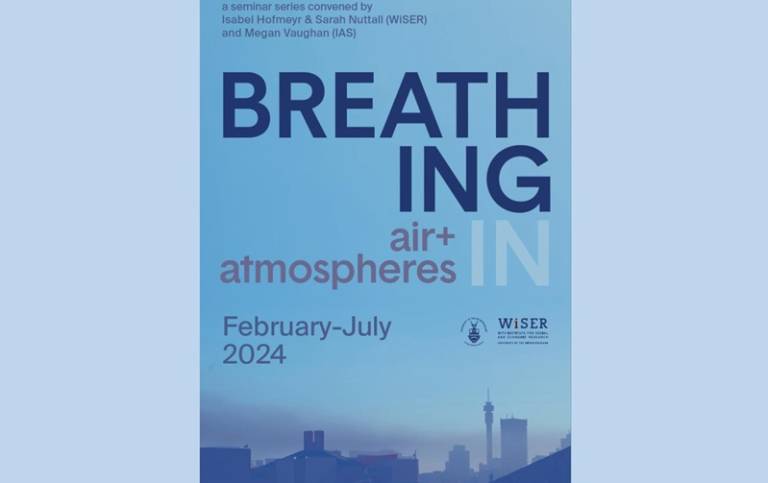(Re) Configuring Atmospheres: Design, Technology and the Quest for ‘Pure air’ in Colonial India
20 May 2024, 2:00 pm–3:00 pm

Breathing In: Air and Atmospheres Seminar with Dr Awadhendra Sharan, Centre for the Study of Developing Societies, Delhi, India. This seminar series is run jointly by the IAS and WiSER at Wits, and takes place fortnightly on Zoom.
This event is free.
Event Information
Open to
- All | UCL staff | UCL students
Availability
- Yes
Cost
- Free
Organiser
-
Professor Megan Vaughan – Institute of Advanced Studies
My presentation shall focus on practices and technologies through which air was sought to be rendered ‘pure’ in cities in colonial India. In particular, I shall draw attention to hygienic discourses that prioritized ‘sunshine and fresh air’, street design and architectural features that aimed at better ventilation and temperature control, electricity and air-conditioning that were popularized in the late colonial period, as much for cleanliness as for cooling, and products such as soaps and mouth wash that advertised their ability to deal with germs that populated the atmosphere. Through these, I shall outline how (i) urban atmospheres were sought to be modified at the local scale to ensure greater comfort and health and (ii) how individual bodies sought to adapt themselves in response to prevailing atmospheric conditions, both being inflected by relations of race, class and gender.
Breathing In: Air and Atmospheres Seminar
This seminar series, run jointly by the IAS and WiSER (Wits Institute for Social and Economic Research, University of the Witwatersrand) takes place fortnightly on Zoom. It builds on ongoing and emergent academic attention to air and atmospheres and draws out suggestions for future research and for ways of acting upon the contemporary air and atmospheric crisis, with a leading focus on global South contexts.
Recent work on infrastructures, atmospheres and the biospheric shifts associated with conditions of the Anthropocene have relied on rendering newly vivid those aspects of the social which have long been treated as background. Sensory ecologies - affective or experienced space which compose environments, in Matthew Gandy’s terms, are synesthetic: like sounds, they reverberate within human and more-than-human subjects. Affective atmospheres are shared bodily situations, drawing also on renewed and shifting elemental understandings of air and refracted light. How can we come conceptually closer to the toxicities of both air pollution and rising authoritarianisms, to material and metaphoric atmospheres – and other less-than-visible carriers of damage? And to a better sense of the entanglements and relationalities that such modes of thought can produce? The growing non-transparency of air, in Sumana Roy’s terms, produces paranoid reading: suspicious, anticipatory theories of negative affect. This occurs in the context of the ‘disappearance of air’ in favour of mask filters, air purifiers and the AQI (Air Quality Index) for those who can afford it. Yet there may also be a reparative range to these questions: making air explicative might offer analytic opportunities for sustenance and responsiveness to what is to come.
About the Speaker
Dr Awadhendra Sharan
Director at Centre for the Study of Developing Societies, Delhi
More about Dr Awadhendra SharanOther events in this series
 Close
Close

